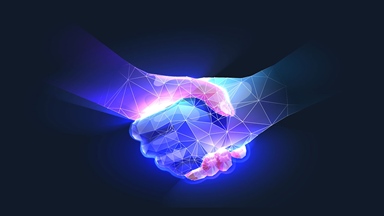Loading component...
At a glance
Rachel Botsman, a speaker at the 2023 CPA Congress, literally wrote the book on trust. Who Can You Trust? examines how technology is revolutionising the very nature of trust – and in some cases tearing apart our notions of trust and truth.
Botsman defines trust as a “confident relationship with the unknown”. She believes it’s not vital to trust familiar people and institutions. Rather, trust is key when the unknown enters the picture.
“Trust is the conduit through which all new ideas travel,” Botsman explains.
“It’s the enabler of innovation and the social glue of all relationships. Trust is needed when you don’t know how something’s going to turn out or how something works.”
Organisational trust
In organisational culture, trust is a key factor in increasing productivity.
“Research shows a high correlation between high trust cultures and innovative cultures. Trust enables people to take those risks, to have that confident relationship with the unknown,” Botsman says.
However, a trust culture doesn’t always equate to a comfortable culture.
“Trust in many ways enables the discomfort, friction and tension that you actually need in healthy cultures. Sometimes, I’ve seen organisations say, ‘Our goal is to create a culture where everyone feels comfortable’.
“[In fact], you want a culture where everyone feels safe. A comfortable culture isn’t a good thing, because then who’s doubting things? Who’s voicing dissent? Where is that friction? That’s where things often go horribly wrong.”
Botsman believes the most effective kind of culture is one that allows people to have differences in outlook and opinion, while still feeling safe at work.
The importance of trusted leadership
If trust is important for innovation and productivity, then staff need to have confidence in the pointy end of the organisation. In this sense, trust is a two-way street, Botsman says, where leadership may have to give up some controlling impulses to engender trust.
“It can be very confronting for leaders when they recognise that their control is a form of lack of trust. Learning how to let go, how to trust people is often the first stage of trusted leadership. The second stage is…how you earn the trust of other people.”
For Botsman, trust and ethics go hand in hand. Ethical leadership, she says, is often not about what you do but what you don’t do.
“When you look at leaders who are highly trusted, it’s because they make the tough calls. They say no to things: ‘We can’t work with that client, it might be highly profitable, but if you look into the ethics of the company, our values aren’t aligned’. A huge component of trusted leadership is saying no.”
How leaders can use ‘micro moments’
“Rather than building trust, [leaders] have to think about continuously earning trust, and the only way to do that is through behaviour. It is not through marketing and communications and grand gestures, it’s really through these ‘micro moments’ of how people experience you and your leadership.”
In these “micro moments”, leaders must display both capability (competence and reliability) and character (empathy and integrity), Botsman says.
“Trust is either earned in a micro moment – where someone feels that you are competent, reliable, or you have integrity or empathy. Or it’s eroded when one of those things starts to wobble.
“The interesting thing that we see is that in most cultures, the wobble is on the character side,” Botsman says.
She believes most organisations focus on the capability side, often at the expense of character. In major corporate crises, most leaders point to capability problems, such as a flaw in the product or system. In most cases, it’s clearly “a character wobble”, Botsman says.
“Someone made a decision that didn’t have integrity. Someone didn’t really care about the employee or the customer. That’s where systemic breakdown of trust usually happens.”
Concerns about AI
Botsman’s notion of trust also speaks of the current discourse around artificial intelligence (AI). People are apprehensive that AI will not only replace their jobs, but will replace them altogether.
To instil trust in this evolving technology, Botsman believes people might need to deploy two different kinds of trust – interpersonal trust, and trust in systems and technology.
“AI is a good example, where often we get caught up in ‘How does this thing work?’ and ‘What does this system do?’
“What people really care about is the intent…whether we trust that it’s going do the right thing. That is an important distinction when we come to trusting complicated systems and digital technologies,” Botsman explains.

